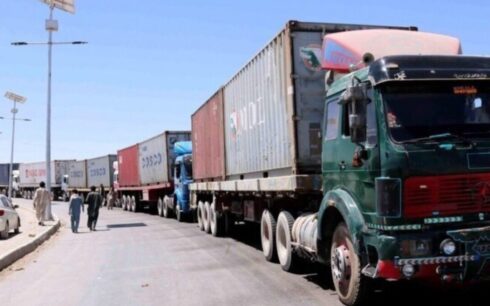The World Bank has delivered a surprisingly positive review of Afghanistan’s economy over the first nine months of the 2022 fiscal year.
According to the report, released this week, high exports, a stable exchange rate and strong revenue collection under Taliban rule have been recorded.
This assessment is in stark contrast to regular reports from U.N. agencies and NGOs of poverty and widespread hunger, made worse by sanctions and the freezing of foreign reserves. However, effective anti-corruption efforts and other measures seem to have enabled the Taliban to contain the downward economic slide.
The World Bank assessment noted that inflationary pressure has eased since July of last year, decelerating by half to 9.1 % in November, while most basic food and non-food items remain widely available. The report attributed the decline in inflation to lower global oil and food prices, along with a stable exchange rate.
Afghanistan also exported $1.7 billion worth of goods, an increase of approximately 90% compared to the full year 2021, the bank reported. Pakistan, with 65%, and India, with 20%, remain the two main export destinations for Afghan vegetable products, mineral products, and textiles.
The World Bank noted that up-to-date import data was unavailable, but the January-June 2022 data shows the country imported $2.9 billion of goods. Neighboring Pakistan, China, and Iran are identified as the main import origins.
The World Bank assessment said revenue collection had remained strong, reaching $1.54 billion between March and December 2022, in line with 2020 results.
According to the report, a major chunk of the revenues came from taxes collected at borders and non-tax sources. A rise in coal mining royalties and fees is likely driving the increase in revenue for Afghan ministries, the report stated.
The World Bank also stated that nominal and real wages rose slightly in December and that most Afghan civil servants have received salaries regularly. Government employees said their key challenges in withdrawing their salaries was cash shortages and overcrowding in banks.
Humanitarian crisis continues
While the World Bank did not address the humanitarian crisis in the country, its report came out just two days after the UN Office for the Coordination of Humanitarian Affairs (OCHA) released its Humanitarian Needs Overview 2023.
According to OCHA, “Afghanistan is facing an unprecedented humanitarian crisis with a very real risk of systemic collapse and human catastrophe.”
They said the collapse of the former government and takeover by the Taliban “has ushered in a new era characterized by rapid economic decline, hunger and risk of malnutrition, inflation driven by global commodity shocks, drastic rises in both urban and rural poverty, a near-collapse of the national public health system, a stifling of the media and civil society sectors, and almost-total exclusion of half the population – women and girls – from public life”.
OCHA stated that this year, 28.3 million people (two thirds of Afghanistan’s population) will need urgent humanitarian assistance in order to survive.
“High levels of unemployment and sustained inflation of key commodity prices have caused the average household’s debt to increase, challenging people’s coping mechanisms and thwarting the already fragile economy’s ability to adapt to shocks,” OCHA stated.





